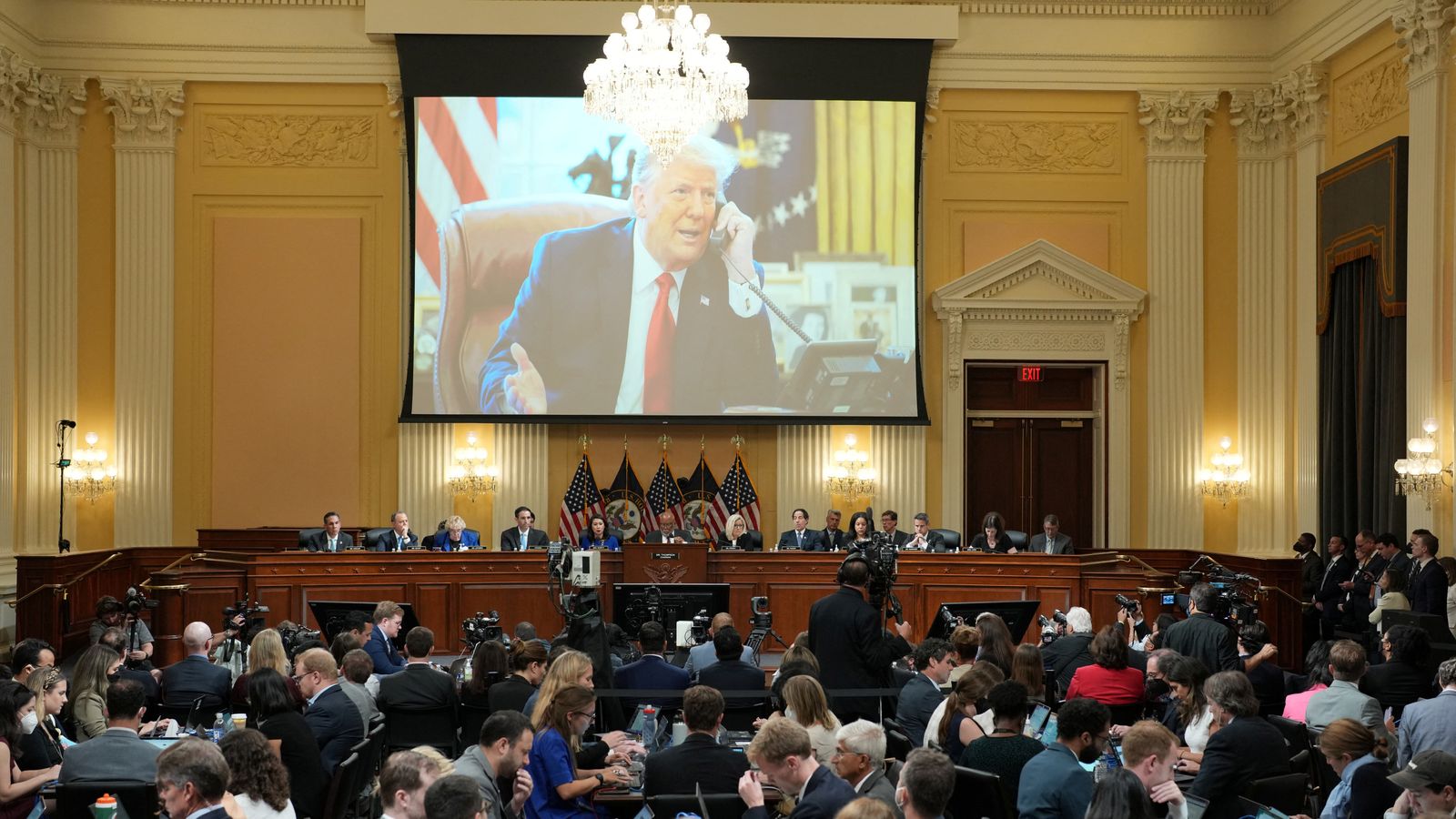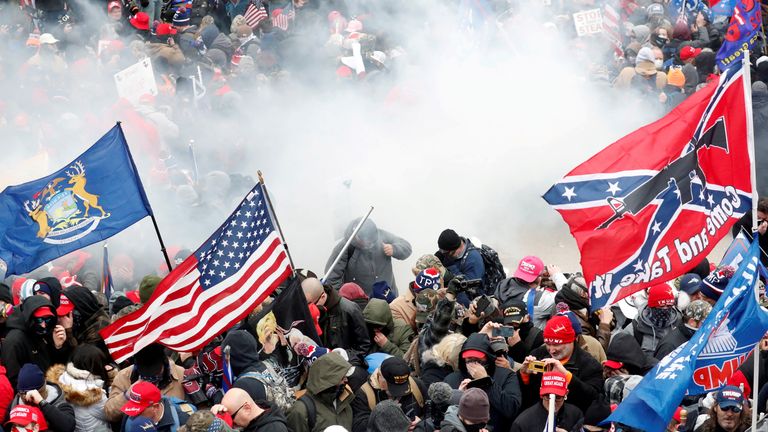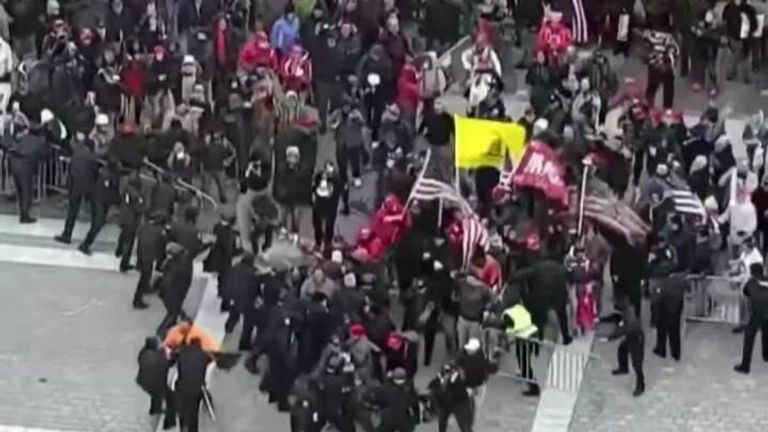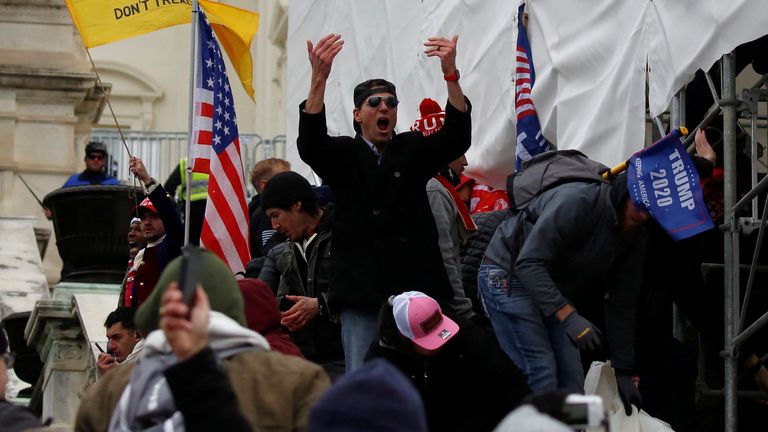New, damning allegations about the final days of Donald Trump’s presidency have emerged during the latest hearing about the Capitol riots.
One committee member said the latest revelations made Watergate – one of the biggest scandals in US political history – look like “a cub scout meeting”.
Here are five things we learned during Tuesday’s hearing.
1. Trump tried to call a future witness
It’s emerged that Donald Trump had tried to call someone who was due to give evidence about the storming of Congress on 6 January 2021.
The witness did not take the call, and instead alerted their lawyers.
The attempted contact has now been referred to the US Department of Justice.
2. There was a brawl in the White House
The events of 18 December 2020 were a focal point for this latest hearing.
This was the day a group of “Stop The Steal” lawyers and activists attended a secret meeting with the president in the Oval Office, without senior White House staff being aware.
They suggested that Donald Trump instruct the US army to seize voting machines to help find evidence of electoral fraud.
When officials realised the meeting was underway, they interrupted – leading to a “brawl” with screaming, expletives and threats of violence.
“The West Wing is unhinged,” remarked one aide.
3. Trump tweet was ‘a call to arms’
Early on 19 December, Mr Trump then tweeted about a “big protest” planned for 6 January, where he wrote: “Be there, will be wild!”
Stephanie Murphy, a Democratic member of the panel, said this tweet “served as a call to action and in some cases as a call to arms”.
The hearing highlighted graphic and violent text messages that were sent after that tweet – as well as videos of right-wing figures including Alex Jones.
They vowed that 6 January would be the day they would fight for the president.
Messages beaming across the far-right forums laid out plans for the big day, which they said Trump was asking for in Washington.
It would be a “red wedding”, said one, a reference to a mass killing in Game Of Thrones. “Bring handcuffs.”
Others talked about killing police officers.
4. Twitter employee worried people might die
An anonymous Twitter employee, who gave evidence to the hearing, revealed that he had a sleepless night on 5 January – and was worried people would die the next day when Trump’s rally took place.
The Twitter employee’s worst fears were confirmed when nine people were left dead during and in the aftermath of the ensuing riot that broke out when Trump supporters violently stormed the Capitol.
The committee revealed that the employee had raised repeated concerns about Trump’s tweets – including the one sent on 19 December.
“It felt as if a mob was being organised and they were gathering together their weaponry and their logic and their reasoning behind why they were prepared to fight,” he said.
Responses to Trump’s tweets included references to being “locked and loaded” and calls for “civil war”.
Twitter responded by saying it took “unprecedented steps” to respond to threats during the 2020 election.
5. Trump aide believed president’s rhetoric led to death
Text messages show Trump aide Brad Parscale felt the president’s rhetoric on 6 January directly led to the violence and the death of protestor Ashli Babbitt.
The 35-year-old was fatally shot by police during the insurrection.
“A sitting president asking for civil war. This week I feel guilty for helping him win,” Parscale had written. “A woman is dead.”




